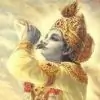Well, there is that difference b/w Vishnu & Shiva derivatives. Vishnu's avatars would take a temporary form, like the ones listed, and once they were over, such as Rama's, they'd return to Vaikuntha dham. That's why @ the end of Rama's reign, Kaal was sent to persuade him to return, and why Krishna too was by some accounts wanted back in Vaikuntha. If they are all over the place, as well as in Vaikuntha, why would anyone bother? That's the reason I don't believe in the 22 avatars, just the 10, sans Buddha but including Mohini. As far as SB goes, I've also found it different while treating the same events from the Mahabharata @ times, and that the latter gives a better explanation (even though it itself has contradictions in some places b/w chapters)
W/ Shiva, Hanuman was carved out of him, and is immortal, but not quite a clone of him. As a result, there is no difficulty w/ Shiva & Hanuman co-existing (I have to find out more about Samba, Ashwatthama and any others)
I believe that Adhyatma Ramayan was the one that had Lakshman as Sesha Naag, Bharat as Panchjanya and Shatrughan as Sudarshan chakra. There was another account I read that claimed that Pradhyumna, rather than being Kama, was Panchjanya and Anirudha was Sudarshan Chakra, but that doesn't make sense @ all, since Krishna, unlike Rama, liberally used both these accessories.
Currently, from what I understand, most western analysis of religion classifies 2 religions as being related in any way by looking @ their holy books, and seeing whether there are any derivations, or common sourcing that would end up in them being classified as common. Under that definition, none of the religions - Buddhism, Jainism or Sikhism would qualify as Hinduism for the simple reason that their books are different. For instance, nothing in the Guru Granth Sahib has any reference to events in Hindu mythology, from what I understand.
If any of these groups regarded, say, the Vedas in the same way that Christians regard the Old Testament, then one could make the claim that those religions are Hindu. But essentially, it's nowadays generally accepted that if you write a new book that's not based on any others and people follow it, you've essentially started a new religion (unless you have them worship living people, in which case it's a cult). Same goes if a group twists the scriptures of one religion enough that it can no longer be regarded as similar.































